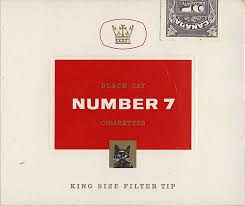NEW: A Reader's Guide
- Emmett Grogan

- Dec 3, 2022
- 4 min read
Suitable for use by students and book clubs, the following "Questions for Discussion" are available with the new, EIGHTH printing (purple cover) of Twelve Stories, available exclusively through BMV Books in Toronto.
1. In “The Widow Leibowietz”, the narrator goes to great lengths to describe in detail “a small town behaving very, very badly”. But how complicit is Emmett in the spectacle of “death in a small town”? Does his empathy for Grubby Dave Leibowietz and Kimiko Oyakawa negate “[getting] home after 4:00 in the morning, still drunk”, or is Emmett as much (if not more) a product of his small-town community than he would like to admit?
2. “The Death of Dr. Hook” opens with the line “It was the holiday long weekend my two best friends and I got one man killed, and put another guy in a wheelchair for the rest of his life.” How many of the narrator’s experiences in life are motivated by having a guilty conscience after witnessing the consequences of his reckless actions as a young man? What specific examples can you think of, along Emmett’s path from childhood to mature adult? Do you think Emmett sees himself a victim, or as a survivor of his misadventures?
3. One of the axioms of creative writing is, Show, don’t tell. As the narrator tells us about his relationship with his grandfather in “A Two-Car Funeral”, what do you think the author of Twelve Stories is showing us, about Emmett Grogan, and Emmett’s family?
4. At the end of “The Museum of Garbage”, the narrator states “I took Booger’s phone number out of my address book, and threw it in the trash…I put Booger and the Museum of Garbage out of my mind for good” as he boards his flight to depart Thunder Bay, leaving his friend behind him. If that statement is true, why do you think Emmett Grogan chooses to include this specific episode in his collection of short stories?
5. Compare “The Duchess” to “The Golden Hour”: if “The Duchess” is an example of the “male gaze” in storytelling, do you think “The Golden Hour” is a more realistic portrait of the ups-and-downs of Emmett’s marriage to his wife, Coco?
6. Even with “The Golden Hour” in the narrative, Twelve Stories could be criticized for its lack of female characters. That being said, what do you make of the mother character in “The Grifters”? Is Emmett’s mother a fully-realized, sympathetic, three-dimensional character? Do you think Emmett has a healthy relationship with his mother? What would you say, if Emmett insisted that “The Grifters” is the only 100% true story of the novel?
7. One of the themes of the novel is the unreliability of memory: by the end “The Fortress of Twelve”, how self-aware do you think the narrator is, about what he remembers, and what he doesn’t remember, of his childhood in Northern Ontario? How much of what Emmett has written about his life story do you accept as fact, versus self-mythmaking?
8. Twelve Stories has a unique structure, with each of the earlier chapters being echoed by a later chapter (examples: “Passiondale” is echoed by “War Balloons”, while “Goodbye, Stranger” is a similarly connected to “The Fortress of Twelve”, and even “The Museum of Garbage” is a direct reflection of “A Two-Car Funeral”.) Putting together each story with its counterpart, why do you think the narrator mirrored earlier episodes of Emmett’s life with later episodes of his life in this way? Are the links between the stories effective?
9. Of all the events over the course of Twelve Stories, why do you think the narrator opened the novel with “Passiondale”? Of all the events over the course of the novel, why do you the narrator chose “Please Play Again” to close out the collection? Was “Passiondale” an effective opening for the novel? Was “Please Play Again” an effective closer? How would you have reacted, if the novel had ended with “War Balloons”?
10. Author Oscar Wilde once commented, “The only books worth reading are books worth re-reading.” Re-reading chapters of Twelve Stories, do you pick up on things you might have missed the first time around? Does re-reading the novel add to your understanding of the material? Does re-reading Twelve Stories add to your enjoyment of the novel?
11. The table of contents for Twelve Stories clearly lists FIFTEEN chapters in the collection: why do you think the book is called Twelve Stories? And would you categorize the book as a collection of short stories, or a novel told through the form of short stories? What are the strengths of the short story form? What are the weaknesses of the short story form? What are the strengths of telling a novel through the short story form? What are the weaknesses of telling a novel through the short story form?
12. In reviewing Twelve Stories, a reader wrote on Goodreads: “The novel was personal, and one chapter in particular was surprisingly touching and different in tone than the rest of the book. It's the part of the book that has sat with me the most.” To which story do you think the reader was referring? “The Dangle”? “The Golden Hour”? “When I was Your Age”?
13. Similarly, if you had to choose one of the chapters of the novel to be anthologized in a collection of Canadian short stories, which chapter would you pick, and why? And, if you had to drop two stories from the book (to make Twelve Stories into a “baker’s dozen” of thirteen chapters) what would they be? How would you make the choice?
These questions will be updated on the website, as necessary. Sincere thanks to everyone over the years who contributed their thoughts while discussing the novel with me. - EG



Comments